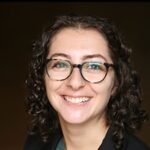Just as the Torah provides an opportunity for recovery regardless of poverty level – different recovery pathways dependent on means – so too should our health system.
Parshat Metzora marks the end of the instructions that detail what a person afflicted with tzaraat, “scaly disease”, has to do to become pure again.
The processes include various rituals that are laid out in very deliberate ways, with specific instructions for the order in which they should be performed. The text outlines special instructions for those who are poor. Commentators suggest that the word דל, dal, “poor,” could refer either to someone who is without means (as the text explicates) or someone who is severely ill. In a world where COVID is still a reality, and there are procedures for returning to normality after testing positive for COVID, the parallels are undeniable.
We know that our healthcare system favors those with greater resources. In a 2020 study done at the Center for Health Policy at the University of Virginia, doctors found that, “Lower education levels and greater percentages of black residents are strongly associated with higher rates of both COVID-19 cases and fatalities.” This study tells us that our current system doesn’t provide equal opportunity for all individuals to recover from illnesses.
When individuals are afflicted with tzaraat in the Torah, we are reminded that, even then, the Israelites knew that this was not a result of something they did. Their afflictions were out of their control. So too, with COVID-19, we know that the socioeconomic status of individuals is not a cause of the disease.
Thus, as the Torah provides an opportunity for recovery regardless of poverty level, so too should our health system. Parshat Metzora shows us how the leadership provided different recovery pathways dependent on means, which is something we can certainly learn from today. Everyone deserves adequate healthcare and the opportunity to recover and bounce back from illness, unrestricted by their circumstances.
 Mira Potter-Schwartz is a senior at the University of Pennsylvania, majoring in Economics with minors in Math and Consumer Psychology. Mira has been involved in Penn Hillel through the Reform Jewish Community and serving on Penn Hillel’s executive board. Beyond Hillel, Mira plays the violin and participates in research in the Economics Department.
Mira Potter-Schwartz is a senior at the University of Pennsylvania, majoring in Economics with minors in Math and Consumer Psychology. Mira has been involved in Penn Hillel through the Reform Jewish Community and serving on Penn Hillel’s executive board. Beyond Hillel, Mira plays the violin and participates in research in the Economics Department.
 Rabbi Ariel Milan-Polisar is the Rabbinic Innovation Fellow and Campus Rabbi at University of Pennsylvania, at Penn Hillel. She was ordained from the New York campus of Hebrew Union College-Jewish Institute of Religion in 2021 and has been at Penn Hillel since July of 2021.
Rabbi Ariel Milan-Polisar is the Rabbinic Innovation Fellow and Campus Rabbi at University of Pennsylvania, at Penn Hillel. She was ordained from the New York campus of Hebrew Union College-Jewish Institute of Religion in 2021 and has been at Penn Hillel since July of 2021.





Comments are closed.